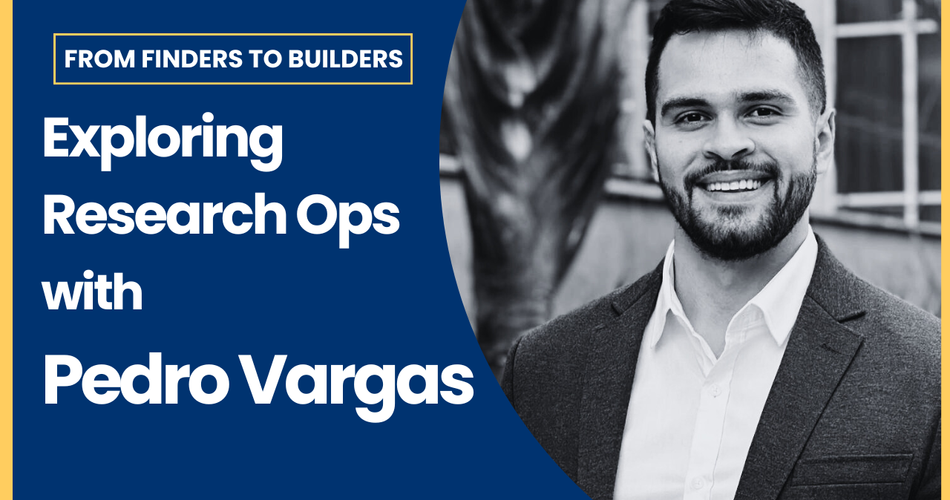Hello everybody! I'm Julian, your host on the "From Finders to Builders" podcast, and I’m thrilled to share some insightful conversations from our recent episode. Today, we had the pleasure of hosting Pedro Vargas, a distinguished user researcher and an expert in Research Ops. We’ve been eagerly waiting to record this episode, and Pedro’s presence made it worth the wait. Here’s a summary of our enlightening discussion.
Introduction to Pedro Vargas
Pedro’s journey into the field of user research began somewhat serendipitously in 2018 when he transitioned from customer support to product research. Over the years, he’s made significant contributions to UX research and has become a pivotal figure in Research Ops, particularly in the Brazilian tech landscape. His profound insights and extensive experience make him a sought-after voice in the field.
The Journey into Research Ops
Pedro and I started our discussion by touching on his background and his early experiences in user research. He highlighted how his journey began in a startup environment where resources were limited, and many processes had to be learned and adapted on the fly.
Understanding the Nuances of Research Ops
We quickly delved into the core of Research Ops. Pedro emphasized that Research Ops extends far beyond individual projects or initiatives. It encompasses a wide array of tasks and processes, including participant recruitment, knowledge management, governance, and advocacy within the organization.
Pedro pointed out a common misconception that Research Ops is only pertinent to large organizations with extensive research teams. Contrary to this belief, he asserted that even solo researchers and small teams engage in Research Ops, often without realizing it. Streamlining processes and creating efficient workflows are essential regardless of the team size.
Practical Advice for Researchers
Pedro’s practical advice for researchers, especially those just starting, is invaluable. He suggested mapping out manual tasks to find opportunities for automation or simplification. Creating templates and guidelines can also save considerable time and make future projects more efficient. Furthermore, Pedro stressed the importance of ensuring that processes are scalable and can function independently, even in the researcher’s absence.
Tackling Common Challenges
We also discussed two significant areas of Research Ops: repositories and participant management. For repositories, Pedro recommended starting simple, perhaps with an Excel or Google Doc, and viewing the repository as an internal product. This approach ensures that it remains user-friendly and valuable to its intended audience.
Regarding participant management, Pedro advised researchers to adhere to legal and ethical standards, ensuring that both the company and participants are protected. He shared his strategy of collaborating with marketing and legal teams to smoothen the recruitment process and maintain compliance with regulations.
Embracing Small Wins and Continuous Learning
Pedro concluded with three key recommendations for first researchers or teams of one:
- Educate Yourself: Study and understand the full scope of Research Ops and its implications.
- Build Connections: Find ways to connect Research Ops with other operational areas like Design Ops and Product Ops.
- Start Small: Focus on immediate pain points and gradually scale up your efforts. Ensure that processes are in place to allow continuity even in your absence.
Watch the full episode here

Subscribe to our email newsletter and unlock access to members-only content and exclusive updates.


Comments